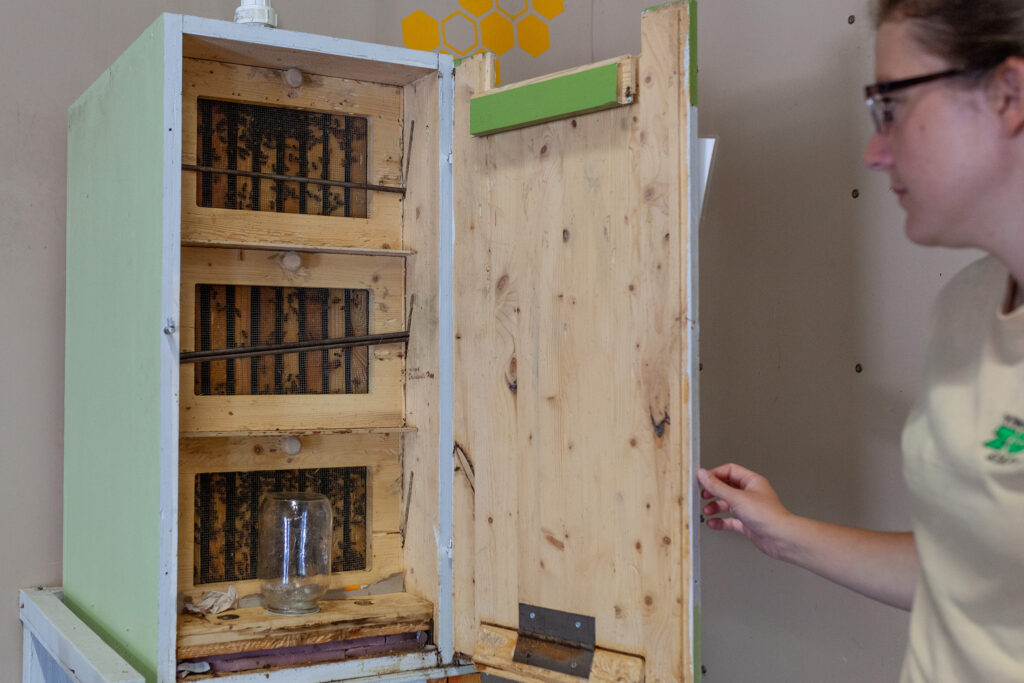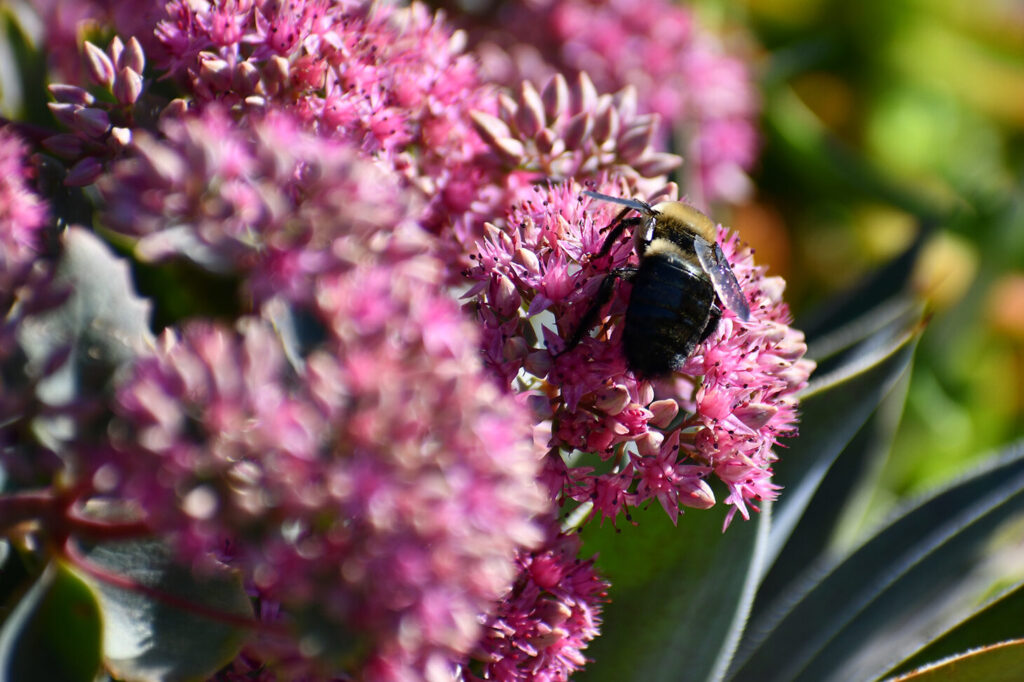What’s the Buzz at the Virginia Zoo?
Have you ever seen a bee swarm at your house or in a public place and been tempted to spray them? Relax, don’t do it! National Honey Bee Day (August 19) is the perfect time to learn why bees and other pollinators are so important and how you can take action at home to help their conservation.
Did you know that honey bees pollinate more than $15 billion worth of crops in the United States each year, according to the United States Department of Agriculture? All bees play a critical role in crop growth and success; for example, The Bee Conservancy states they are essential in pollinating fruits, nuts, and vegetables across the U.S. and they have a direct impact on food security.
However, honey bees are a non-native species, meaning they did not originate in North America but were brought here from Eurasia and Africa by humans. There are lots of other species of bees and pollinators that are pivotal to food production in the United States, making them equally important to learn about and protect.

Learn about honey bees and pollinators when you visit the Zoo
Visit the Zoo Farm to see active honey bee hives! One is an observation hive, meaning our keepers don’t extract honey from it, and it is simply an education tool to observe the bees’ behavior. Another is a new, Slovenian AZ hive which is designed to be kept indoors and to help the bees generate warmth more easily. The bees in the AZ hive have a portal allowing them to fly outside, pollinate plants in Zoo gardens and then return to make honey! Come learn about how the bees make honey, what to do if you encounter a swarm, and how to protect their threatened population.
After seeing the honey bees at work, explore the Zoo’s pollinator garden areas. The Zoo has created new garden spaces following guidelines set forth by the SAFE (Saving Animals From Extinction) Monarch program, a framework developed by the National Association of Zoos & Aquariums to ensure the protection of Monarch butterflies. These areas – including the extension of our pollinator garden near Trail of the Tiger, a Gingko garden near the emu exhibit, a bee garden at Flora Point, and two gardens coming soon to our Turtle Oasis exhibit – are designed to attract and support native pollinators.
You can also attend educator plant chats for a chance to have dialogue and learn more. Plant Chats happen on Tuesdays at 12pm for the remainder of August and cover a variety of topics on pollinators and different types of plants in our gardens.
What you can do at home to protect pollinators
Conservation of pollinator species starts with creating healthy habitats in your community. These include responsible consumerism, reducing the use of pesticides, and doing proper research before planting anything or using chemicals. For example, purchasing plants which are genetic natives to your area will limit the presence of pest-attracting fungus in your garden, reducing your need for pest control and contributing to the overall health of your garden.
While non-organic pesticides can be harmful to all pollinators, neonicotinoid pesticides affect the bee population most. According to the Xerces Society for Invertebrate Conservation, neonicotinoids are highly toxic in small quantities to many invertebrates, including bees. These chemicals absorb plants they’re used on, making it dangerous for pollinators to feed on them. It’s best to implement practices to deter pests without affecting pollinators, like attracting birds with a bird house or leaving wasps undisturbed. Both birds and wasps will eat the bad pests! Additionally, be sure to prune your plants often to reduce overcrowding, which can lend way to fungus growth.
If you want to attract more bees to your garden, you can create bee houses, which function similarly to bird houses. It’s important to thoroughly research bee houses before establishing one as different species all have different needs!
Lastly, if you encounter a bee swarm, do not spray it or attempt to move it, and do not panic! Honey bees are unlikely to sting unless they believe you’re disturbing their honeycomb, and when they’re swarming, they are simply looking for a new home. Call the Tidewater Beekeepers Association Swarm Hotline at 757-285-4509 and they will move the swarm.
